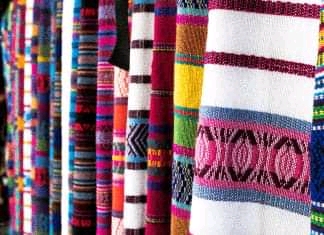With Salaula and Cheap Imports from China, will Mulungushi Textiles Survive
Amb. Emmanuel Mwamba wrote;
Mulungushi Textile has been a Cinderella project by every new government apparently to woo quick political support from the people of Kabwe than its viability.
The Patriotic Front Government budgetted for $15million to revive the plant in Kabwe.
Can Mulungushi Textiles Work?
Zambia had a thriving textiles, clothing, and garments sector.
The textiles and clothing industry grew considerably between 1964 and the 1980s, during the period of implementing the policy of Import Substitution Industrialisation (ISI).
By the 1980s, Zambia had developed a full value chain of the textile industry from cotton farming and production, to ginning, spinning,knitting and weaving, to garment production and to finished products.
The country had Kafue Textiles, and Mulungushi Textiles that were state-owned enterprise with clothing industry such as Serioes International. Serioes International Company Limited was a Luanshya based company that produced suits for the local and international markets.
There was also a thriving private sector in the sector. For example, Livingstone alone had Partex Industries, Robin Garments Limited, Sparrow Garments Limited, Sportex Knitting Mills, Zambia Fashions Limited and J.R.Textiles. From the Copperbelt we had Mukuba Textile, Swap Spinning and Kariba Textiles.
During this period, the country hosted more than 130 textiles and garment manufacturing companies.
However, during the implementation of the Structural Adjustment Programmes (SAPs) in the 1990s, the economy was liberalized, birders opened and the protectionist policy on Import Substitution was abandoned and immediately subjecting the economy to increased and unfair competition from countries with more developed production sectors, more efficiencies, producing their goods at higher economies of scale such as China, India, Malaysia and Vietnam.
Then came the surge in cheap imports and the increasing and dominant phenomenon of second-hand clothing.
Further, second-hand clothing, usually durable and high quality, but considered as aid and welfare for the poor, was imported duty free at the time and was extremely cheaper than any locally manufactured goods, fast aiding the collapse of the tectile industry.
An NGO, Development Aid from People to People in Zambia (DAPP Zambia), a not-for-profit, non-governmental organisation founded in 1986 was allowed to set up stores enabling cheap and duty free imports of second-hand clothes.
It dudnt take long, the local textile, clothing snd apparel industry collapsed.
Therefore, without a robust and far-sighted policy on the textile and garment industry determining on issues such as Salaula and cheap imports, this project at Mulungushi Textile will fall into its well-known perenial failure.

He has found out that the New Dawn means business. Trade policy will deal with what Emmanuel Mwamba is pretending to be worried about. He knows what the revival of Mulungushi Textiles means for 2026. So he just had to find or manufacture a fault somehow.
Police, Military, Air force defence wings buy their uniforms in salaula?
Let we not forget Nurses among others